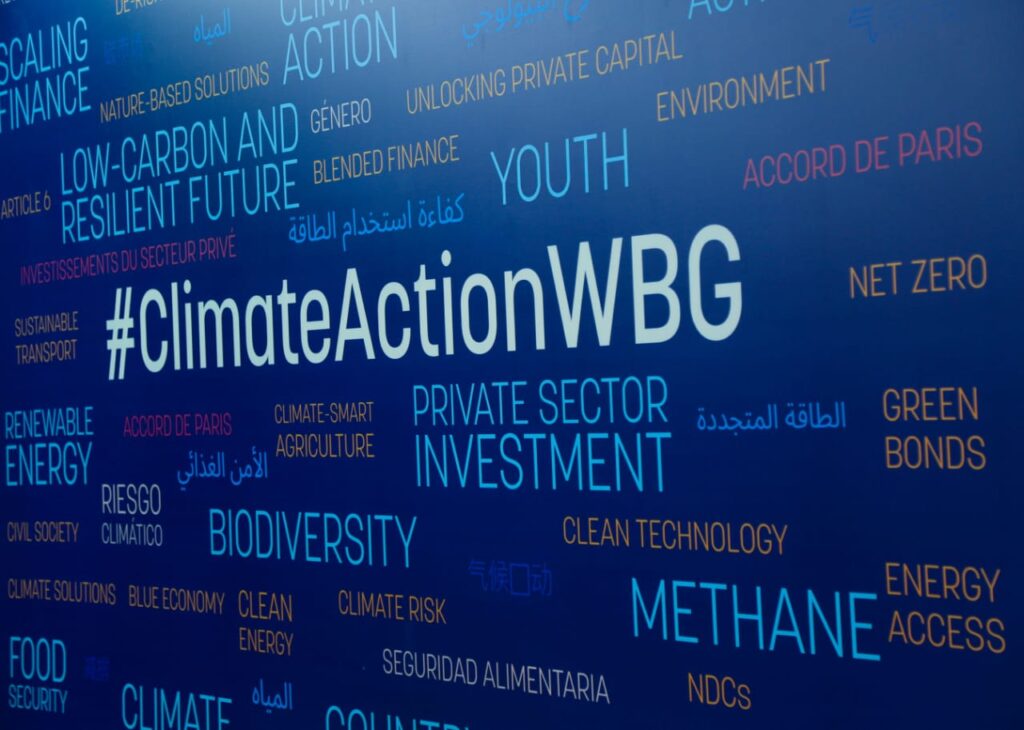Climate technology programme for Africa launched at COP27.
A new programme to help African states plan and scale new decarbonisation solutions and blunt the devastating effects of climate change has been launched at COP27. The programme will propel new capital flow in climate tech to help nations harness and build renewable energy systems to power their economies. Senior officials from several governments, the UN Environment Programme (UNEP) and the UN Framework Convention on Climate Change (UNFCCC), launched the initiative that runs until 2027. The Technology Executive Committee (TEC) and Climate Technology Centre and Network (CTCN) – the two bodies of the Technology Mechanism under the UNFCCC and Paris Agreement – launched their joint work programme to accelerate the deployment of transformative climate technologies that are urgently required to tackle climate change.
“The launch of this joint work programme is an important opportunity for us to step up rapidly efforts to deploy technology to address through mitigation and adaptation”, said Inger Andersen, Executive Director of UNEP. The new joint work programme of the Technology Mechanism covers work from 2023-2027 and foresees specific joint activities to be implemented by the TEC and CTCN. This includes tech roadmaps, work on gender and technology, technology and NDCs and digitalisation, and common areas of work for the two bodies, including national systems of innovation, industry, and the water-energy-food nexus. “Time is running out to achieve the key goals of the Paris Agreement. The rapid scaling up and effective transfer of climate technologies are imperative to limit the global average temperature rise to 1.5 degrees Celsius and to build resilience to climate change. A reinvigorated Technology Mechanism is needed to unlock appropriate climate technologies everywhere in the world, and that is what this new work programme is designed to achieve,” said Simon Stiell, UNFCCC Executive Secretary.
Climate tech is an important ingredient in fast-tracking Africa’s transition from high-pollution industries to adopting clean sources and promoting an energy transition in line with the 1.5-degree goal. The climate tech industry in Africa is rapidly growing, churning more start-ups and attracting investment, although financing is still way below the required levels. The Intergovernmental Panel on Climate Change’s (IPCC) Sixth Assessment Report (IPCC AR6) and the contributions from Working Group III (IPCC WG III) on Mitigation of Climate Change spotlight technology as an enabler to accelerate mitigation and drive effective adaptation solutions. It shows that limiting global warming will require significant transitions in primary sectors and areas, including energy, and cities, pointing to several key areas with high potential for emission reductions, such as cities/urban areas, industry, agriculture, forestry, and land use change. This joint work programme is a significant milestone for the Technology Mechanism and signals a new era of work for climate technology under the Convention and the Paris Agreement. It is guided by science, aligned with the long-term goals of the Paris Agreement, and focused on high-potential sectors and high-impact actions.
On November 15th, the United States said it would avail US$ million to support the implementation of the Joint Work Programme. US Special Presidential Envoy for Climate John Kerry is upbeat that the Technology Mechanism will galvanise action in this decisive decade through smart technology solutions for climate resilience and mitigation. “With this contribution, the United States is supporting a new, strategic approach to cooperation on technology and innovation in developing countries and fulfilling a key pledge made at COP26. We are committed to ensuring that the Parties cooperate effectively to accelerate action at the scale and pace needed through research, development, demonstration, and deployment of climate technologies”.
Source: bird story agency



